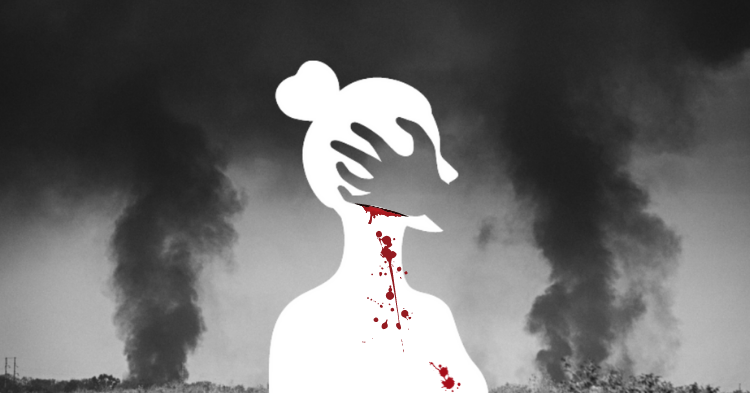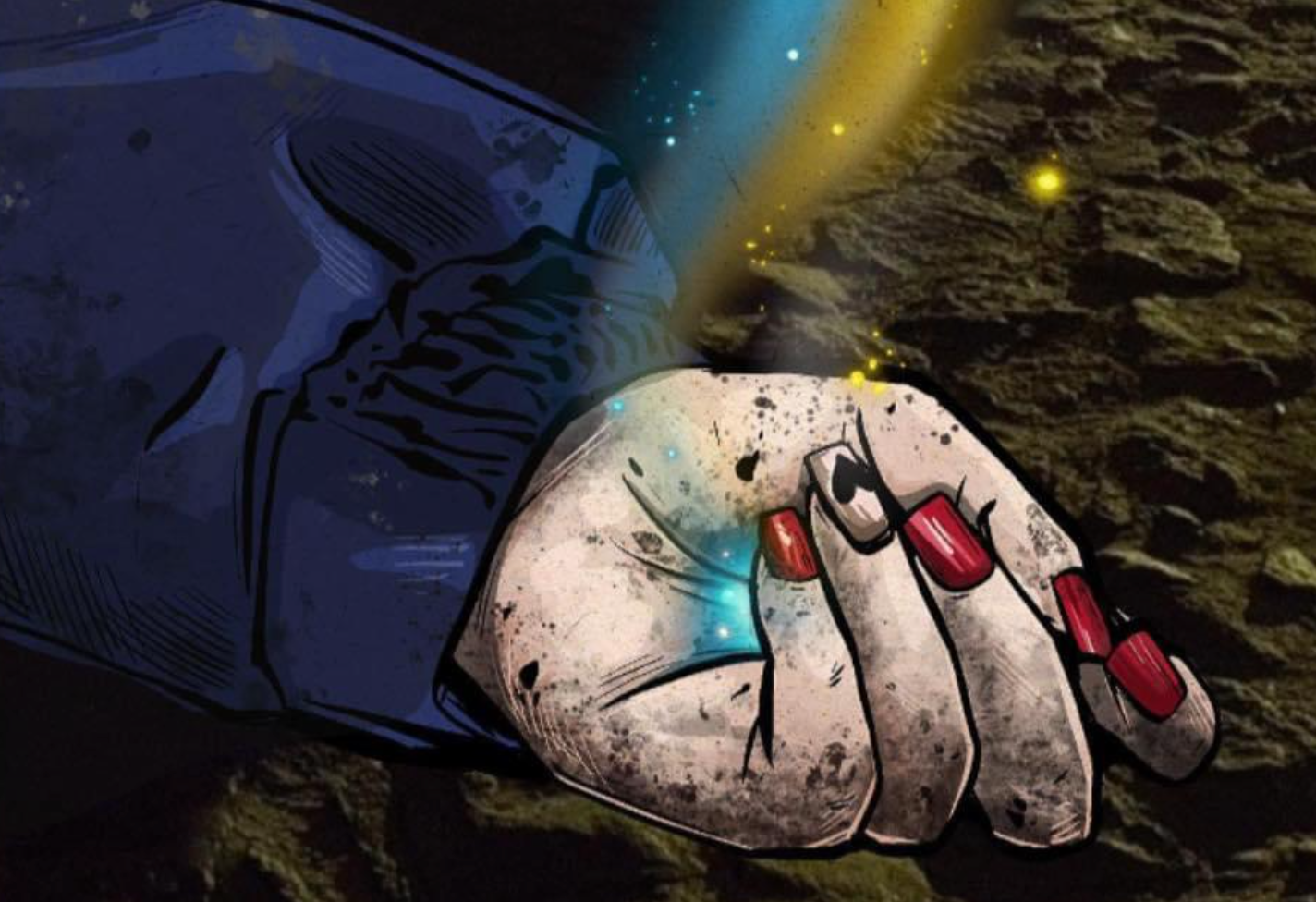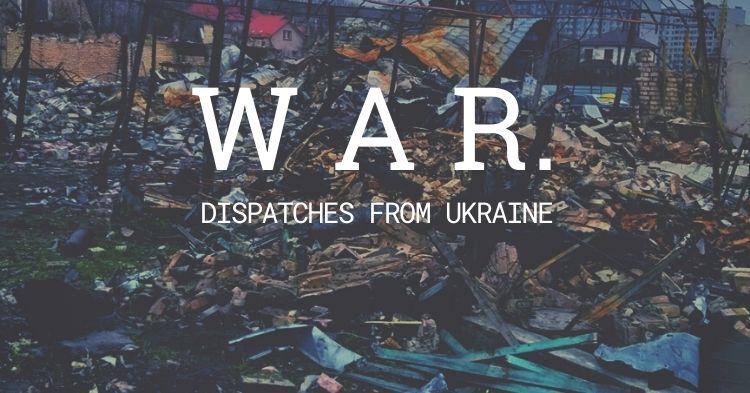Officials and human rights organizations report rape
Rape cases have been reported by Ukrainian officials, human rights organizations and MPs. Ukraine’s Foreign Minister Dmytro Kuleba said at a briefing at London’s Chatham House: “We have numerous cases unfortunately where Russian soldiers have raped women in Ukrainian towns.” The Office of the Commissioner for Human Rights in an answer to Ukrainska Pravda’s public request said on 18 March that they have been receiving complaints from Ukrainians about sexual crimes committed by the Russian military since the outbreak of full-scale war in Ukraine. Our source at a law enforcement agency told Euromaidan Press that as of 22 March there were nearly one hundred registered cases of rape by Russian soldiers, with many more unregistered cases.
The director of the national hotline of the Human rights organization La Strada Ukraine told Deutsche Welle about anonymous reports from victims of rape by Russian soldiers. She also said that rape survivors are rarely ready to speak up or report the crimes to the police because of the trauma, denial of reality, fear, and unwillingness to disclose personal information. Hillary Margolis, a women’s rights researcher for Human Rights Watch, told The Independent that “the fact that we are seeing initial reports of cases of rape by troops in Ukraine only indicates there are likely many more that remain unreported.” In an interview with Radio Liberty, the director of Amnesty International Ukraine also confirmed that there have been verified cases of rape.
Cases of rape by Russian soldiers, in particular of young girls, have also become known via Russian occupiers’ conversations intercepted by the Ukrainian Security Service. “Some Russian soldiers have even boasted about their deeds,”–Ukraine’s Deputy Internal Minister said on 23 March.
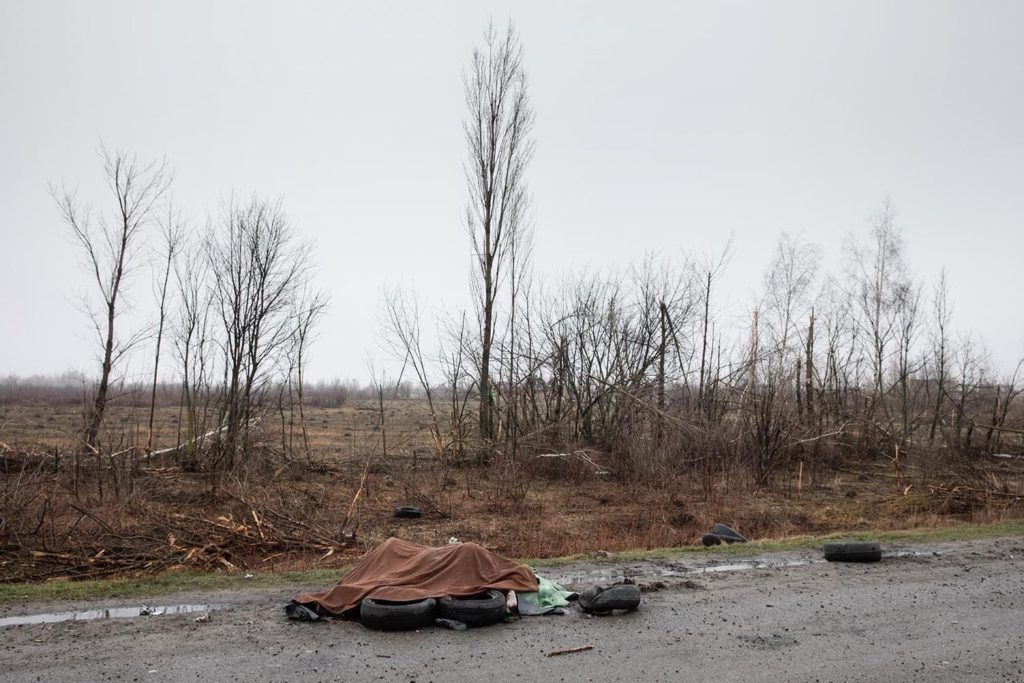
Testimonies of rape survivors
Two Russians killed Nataliya’s husband and repeatedly raped her
On March 22, the Ukrainian Prosecutor General announced the first case of repeated rape by a Russian serviceman:
“A Russian serviceman broke into a private house in one of the villages of Brovary district and shot the owner of the house. Later, he and another serviceman of the aggressor country, while intoxicated, repeatedly raped the wife of a murdered civilian, threatening her with violence and weapons, including against her young child, who was with the victim.”
On 28 March, the Times published an interview with a 33-year-old anonymous woman, Nataliya (not her real name), whom the newspaper identified as being at the center of the investigation.
The woman stated that on 9 March her husband heard something outside their private house, and walked out. Soon after she heard a single shot:
“I cried out, ‘Where is my husband?.. Then I looked outside and I saw him on the ground by the gate. This younger guy [who appeared in his 20s] put a gun to my head and said: ‘I shot your husband because he’s a Nazi.'”
Then the two soldiers took turns raping her while her 4-year-old son was crying in the boiler room next door.
“He said ‘you’d better shut up or I’ll get your child and show him his mother’s brains spread around the house.’ All the time they held the gun by my head and taunted me, saying, ‘How do you think she sucks it? Shall we kill her or keep her alive?”–the woman told the Times.
After the men left, Nataliya went to her son, who was rigid with fear and refusing to move.
About 20 minutes later the men returned and raped Nataliya again. When the men came for the third time, they were so drunk that they fell asleep and Nataliya and her son could flee:
“While I was opening the gate my son was standing next to his father’s body but it was dark and he did not understand it was his father. He said ‘will we get shot the same as this man here?’”
When Nataliya was in safety in the west of Ukraine, her sister urged Natalya to report her rape and the murder of her husband to the police:
“I could have been silent but when we got to the police my husband’s sister made me speak up and there was no going back,”
Nataliya could not bear to tell her son about his dad’s death. In the interview, she recalled him:
“We wanted to live closer to nature, that’s why we didn’t live in the city. My husband put his heart and soul into building the house and everything was made of natural wood and stone. We even used to go into the forest to pick litter that other people had left behind.̌..I don’t know how I will live with all of it but I still understand that my husband built this house for us. I would never be able to bring myself to sell it.”
Russian soldier cut Olha’s cheek with a knife as he raped her
Holding a gun near Olha’s (not her real name) throat, a 20-year-old Russian soldier raped the woman from Mala Rohan, Kharkiv Oblast. He threatened Olha by shooting into the cellar and cut her cheek with a knife and skin on her neck. Injuries were confirmed by the Human Right Watch which interviewed Olha and published her story on 3 April.
Russian soldiers entered the village on February 25, Olha said. That day, about 40 villagers, mostly women and girls, were sheltering in the basement of a local school. She was there with her 5-year-old daughter, her mother, her 13-year-old sister, and her 24-year-old brother.
At around midnight on March 13, a Russian soldier forcibly entered the school, Olha said: “He broke glass windows at the entrance to the school and banged on the door.” A guard opened the door.
The soldier, who carried an assault rifle and a pistol, went into the basement and ordered everyone there to line up. The woman stood in the line holding her daughter, who was asleep. He told her to give him the girl, but she refused. He told her brother to come forward and ordered the rest of the group to kneel, or, he said, he would shoot everyone in the basement.
The soldier ordered her brother to follow him to help find food. They left and came back an hour or two later. The soldier sat down on the floor.
“People started asking if they could go to the bathroom and he let them, in groups of two and three,” Olha said. After that, people started settling down for the night. The soldier approached her family and told her to follow him.
The soldier took her to a classroom on the second floor, where he pointed a gun at her and told her to undress. She said:
“He told me to give him [oral sex]. The whole time he held the gun near my temple or put it into my face. Twice he shot at the ceiling and said it was to give me more ‘motivation.’”
He raped her, then told her to sit on a chair.
She said she was getting very cold in the unheated school and asked if she could get dressed, but the soldier told her she should only put on her top, not her pants or underwear.
“While I was putting on my clothes, the soldier told me that he was Russian, that his name was [name withheld] and that he was 20. He said that I reminded him of a girl he went to school with.”
The soldier told her to go to the basement and get her things so that she could stay in the classroom with him. She refused. “I knew my daughter would cry if she saw me,” she said. The soldier got a knife and told her to do so as he said if she wanted to see her child again. The soldier raped her again, put a knife to her throat and cut the skin on her neck. He also cut her cheek with the knife and cut off some of her hair. He hit her on the face with a book and repeatedly slapped her. Photographs that she shared with Human Rights Watch, dated March 19 and 20, show cut marks and bruising on her neck and face.
At about 7 a.m. on March 14, the soldier told her to find him a pack of cigarettes. They went downstairs together. She asked the guard to give the soldier some cigarettes. After the soldier got the cigarettes, he left.
That day she and her family walked to Kharkiv, where volunteers provided her with basic medical assistance. They moved into a bomb shelter. “I am lucky to be alive,” she said. She said that the Malaya Rohan council authorities were in touch with her and her mother and that the authorities were preparing a criminal case, which they plan to file with Ukraine’s prosecutor’s office.
Human Rights Watch received three other allegations of sexual violence by Russian soldiers in other villages in the Chernihiv region and in Mariupol in the south but has not been able to independently verify them.
Unwilling to tell
Victims are often unwilling to speak out for various reasons, including trauma. Euromaidan Press tried to contact a rape survivor. Her story was briefly recounted on Facebook by her friend, a blogger and volunteer, who in the phone call with us told that Mariya (not her real name) was asked by three journalists to talk about the crime but refused because of the psychological trauma. She also refuses to report the case to the police. A blogger said that Mariya will be in a psychological rehabilitation program and may decide to speak out “in a week or so”.
As in the case of Nataliya’s story above, victims are often urged to speak out by their nearest and dearest. The Ukraine MP who spoke abroad about cases of Russian soldiers who rape in Ukraine says women need time to speak out publicly. For now, hundreds of cases have been reported on social media, and many reports come from politicians, human rights leaders and journalists.
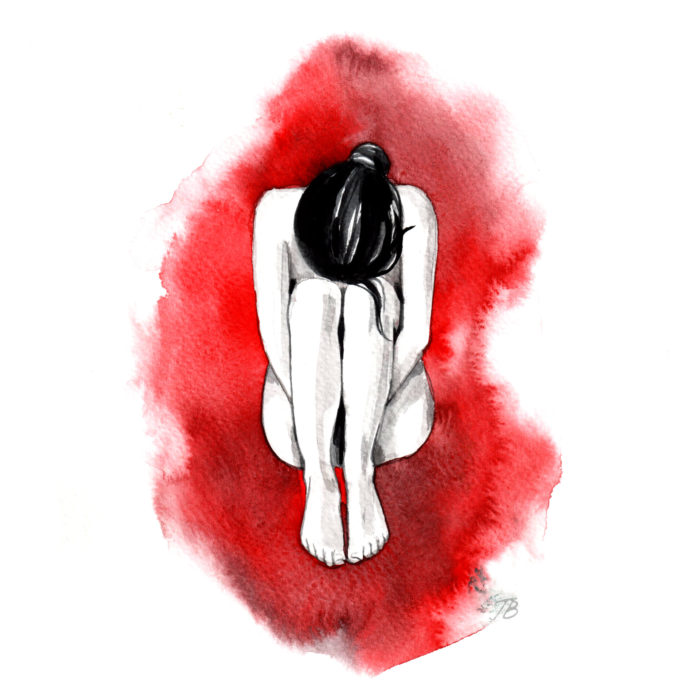
Volunteer Vira Khvust recounted the case of her friend who had been raped for more than a week. The case has been confirmed by the Ukrainian ombudswoman Denisova.
“Yesterday I received a message from the person I was looking for in all [Facebook] groups in Kharkiv. My dear Liuba. We have been friends for 10 years. Her story is one of those that destroy from the inside. Writing it, I feel unbearable pain.
She is 29. She lived all her life with her mother. For the last 3 years, her mother had been an invalid. A few days after the war began, as there was already a hole in their house, three Russians broke into their apartment. They took the food, and one of them remained. He broke her phone.
Liuba, my dear, who never cries, burst into tears. This nit raped her for more than a week.
And then he began to confess his great love and said he wanted to send her away from the war. She refused, saying that her mother was ill, she would not leave her. And then, this shit, in front of a fragile Liuba, shot the weak old woman. God, I’m writing this, and it doesn’t fit in my head. I live each story as coldly as possible so as not to go crazy, but not this one. It’s like, personal. It hurts…My dear Liuba is currently on her way to the rehabilitation center, from where she will go abroad. But I can’t stop crying.”–Vira Khvust wrote.
On 4 March, Kherson resident Svitlana Zorina told CNN about a 17-year-old girl she personally knows who was raped by Russian occupiers. The evacuees also reported Russian soldiers massively raping Ukrainian women, another volunteer told NV on 23 March. Among the victims was an 18-year-old girl who was raped by the occupiers for 8 days. It was also reported by Ukrainska Pravda commentator that Kadyrov’s soldiers raped 15–16-year-old girls in Borodianka.
Aliona Kryvulyak, Director of the La Strada-Ukraine National Hotlines Department told DW about three appeals to the organization:
“We received the first appeal on March 4 from the Kherson. The woman did not immediately report the rape. She began to say that she and her 17-year-old daughter went to rallies in support of Ukraine, where they faced psychological and physical violence from the Russian occupiers. Then, after some time, the woman told about the rape, but she no longer talked about herself, but about her daughter. The woman admitted that she and her 17-year-old daughter had suffered from gang rape by the Russian occupiers. This is a very traumatic event for the woman herself, and given that she is a mother and in this situation she had neither the physical nor the emotional ability to protect her child.
The second appeal came from a woman who sheltered a friend and three-year-old son in Vinytsia Oblast. A friend confessed to the woman, who suffered from the gang rape of three Russian occupiers in front of a child. One day, the Russian military came to her in a state of either alcohol or drug intoxication. The child began to cry, they began to make fun of her. Then they began to psychologically insult the woman, aiming a weapon at her and threatening to shoot them both in the head if she did not shut up the child. The victim also confessed to her friend that it was very difficult for her to cope with the experience and asked to take the child away because she simply did not see any sense in living anymore. We suggested that the traumated woman contact us for psychological support, which would be anonymous and confidential. But she still hasn’t contacted us.
The third appeal came from a volunteer organization that reported the gang rape of three women in front of children in one of Kyiv’s cities, which was not officially considered a temporarily occupied territory, but there were many Russian servicemen there. The Russian occupiers first shot the husband of one of the victims and then raped three women in front of their young children. All these appeals were anonymous. But there are many more such cases than we know of.”
Many victims have been killed and are not able to tell their stories.
On 9 March, executive director at Ukrainian Anti-Corruption Action Centre Daria Kaleniuk recounted:
“My friends, 2 young girls were captured, tortured, raped, and killed. One of them was a brilliant doctor, another one was a scientist and had a Ph.D.”

Witnesses about Russian soldiers raping little girls
Russian atrocities became appallingly apparent after Kyiv Oblast was liberated. The editor-in-chief of the Ukrainian media outlet Babel wrote about juvenile rape committed by Russian soldiers: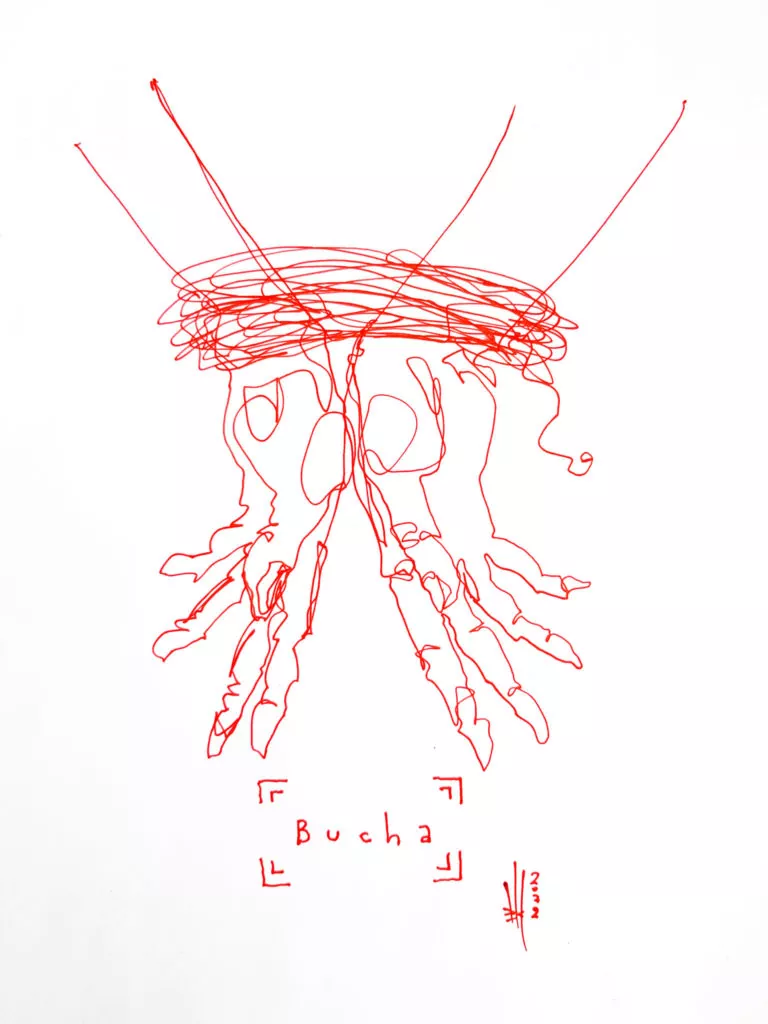
“Some of the children killed have their hands tied. Children. The children were tied up. Shot dogs. Killed women. Girls under 10 with torn vaginas. Irpin, Bucha, Dmitrievka. How to live with it and is it worth living at all. How to explain it to yourself? How?”
Ukrainian ombudswoman Denisova confirmed on 5 April that in Irpin murdered children under the age of 10 with signs of rape and torture had been found.
On 4 April, a journalist from local public broadcaster TV UA:Rivne reported about a 9-year-old girl from Irpin raped by 11 Russian soldiers who carved the letter Z on the little girl’s chest and murdered her:
“It happened about two weeks ago. I only found out about it now. I was not a witness. The story is based exclusively on the words of my relative. My relative had a miscarriage because she learned about the fate of her close family, who could not evacuate from Irpin.
Parents were shot by rushists. Most likely, their nine-year-old daughter saw it. The little one was raped by ELEVEN, I can’t find a word to say who. Apparently, the Ukrainian language does not have such a word. At least the examination showed that there were 11 different samples of semen on the girl’s body. According to my relative, the child did not have genitals – non-humans tore it.
They did not stop there. They carved the letter Z on Angel’s chest and ripped open her tummy…Are you saying that Putin is to blame for everything? But it was not Putin who did it! All of Russia must answer for this.”–the journalist wrote.
Rape is legitimized by Russian politics and culture
On 7 February 2022 during a press conference after talks with Macron Putin cited the rapist phrase talking about Ukraine:
“Like you this or dislike–abide, my beauty, abide!”
“Beauty sleeps under gravestone,
I crept and am f***ing her
Like you or dislike it
Sleep, my beauty, sleep!”
Details on Putin’s rhetoric towards Ukraine, characteristic of rape culture, and why “the international community can’t afford to ignore it” has been outlined in an article for Ms Magazine written on 3 April 2022.
The State Department’s 2020 Country Report for Human Rights Practices in Ukraine notes that Russian-led forces reportedly carried out “beatings and electric shock in the genital area, rape, threats of rape, forced nudity, and threats of rape against family members” in 2020 as a “method of torture and mistreatment to punish, humiliate, or extract confessions” from detainees.
Not only indifference to someone’s will is apparent in this rhyme Putin modified and cited. The word “my” is also telling. Like Russia considers Ukraine “its country,” Russian soldiers sickly and pervertedly believe they have the right to rape Ukrainian women. This in part explains how it is possible that Russians simultaneously support the war against Ukraine and “friendship” with Ukraine. The Russian soldier shooting Liuba’s mother in the story above illustrates the kind of “love” and “friendship” Russians mean.
Literally speaking, rape is a crime against the most intimate, including the most intimate feelings. There are reported cases of girls who had been raped and after that felt so ashamed in front of their own parents and relatives that they committed suicide.
British Ambassador to Ukraine fairly writes on 3 April that
“Rape is a weapon of war. Though we don’t yet know the full extent of its use in Ukraine it’s already clear it was part of the Russian arsenal. Women raped in front of their kids, girls in front of their families, as a deliberate act of subjugation. Rape is a war crime.”
It should also not be forgotten that numerous cases of rape have been reported in the temporarily occupied territories of Donbas (in particular in the Izoliatsiya Russian concentration camp) and Crimea since the Russians invaded in 2014. Many pieces of evidence were collected in this 120-page report on gender-based violence in the territories of Ukraine, temporarily occupied by Russians. This suggests that rape is a permanent part of Russian military aggression.
And not only in Ukraine and in this century. During World War 2, the majority of rape by Russian soldiers were committed in the Soviet occupation zone; estimates of the numbers of German women raped by Soviet soldiers have ranged up to 2 million. According to historian William Hitchcock, in many cases women were victims of repeated rapes, some as many as 60 to 70 times.
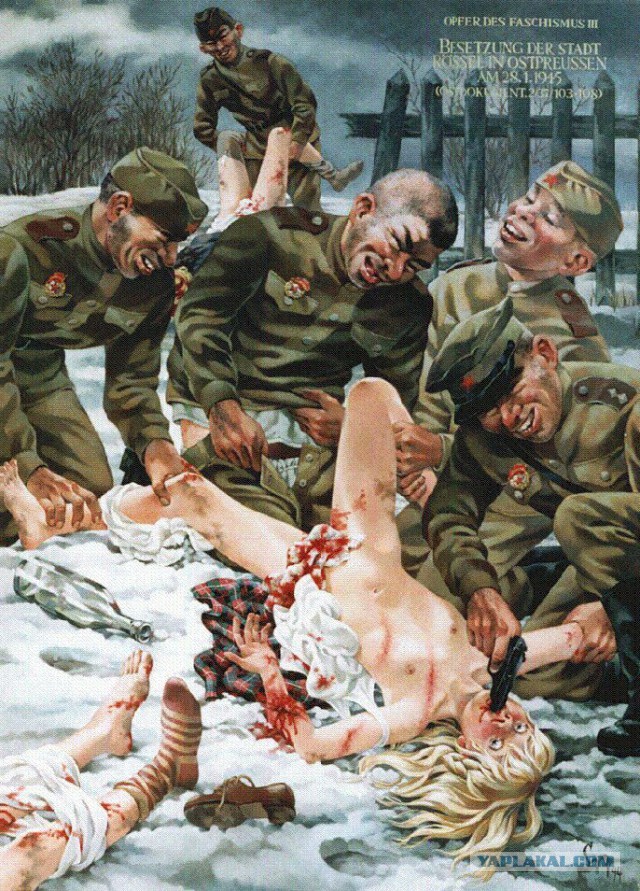
Read more:
- Bucha massacre: Ukraine urges ICC to gather evidence of Russian war crimes
- Video: Captured terrorist tells of rapes, murders, racketeering at Sloviansk checkpoint
- Raped, tortured, buried alive: Horrific crimes of pro-Russia militia in Ukraine
- “The Russian military rape women, the dead are just being dumped,” evacuee from Russian-occupied city says
- “They killed my family in cold blood!” Russian military targets civilians fleeing…
- Every day of delay costs enormous amount of lives, says Ukrainian deputy prime minister




